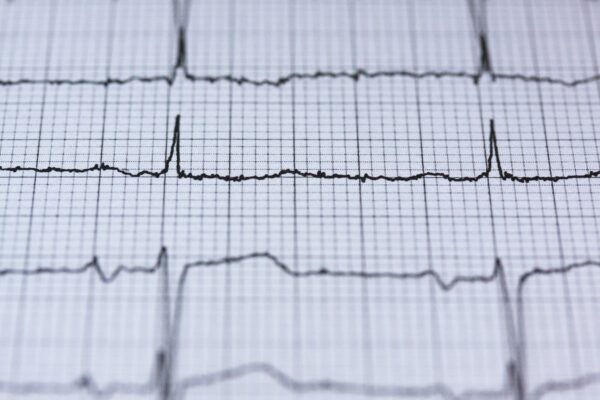Electrocardiography Testing: A Window into Your Heart's Health
Electrocardiography, commonly known as ECG or EKG, is a vital diagnostic tool that provides valuable insights into the health of your heart. It is a non-invasive procedure that records the electrical activity of your heart, creating a visual representation of the heart’s rhythm and function.
ECG, or electrocardiogram, is an essential part of modern medicine, serving various purposes in cardiology and general healthcare. This diagnostic test helps healthcare professionals understand the heart’s electrical conduction system, allowing them to assess its health and detect abnormalities. Here,
we explore the critical aspects of ECG testing, from its basic principles to its diverse applications.
Principles of ECG Testing
The heart functions as a pump, providing a continuous blood flow throughout the body. This repetitive motion is driven by electrical impulses generated within the heart. An ECG works by capturing these electrical signals, which are then transformed into a visual
representation is known as an electrocardiogram.
The ECG procedure involves placing a series of electrodes on specific parts of the body, typically on the chest, arms, and legs. These electrodes are connected to an ECG machine,
which records the electrical signals inside the heart. The resulting graph represents the
various phases of the cardiac cycle.
Applications of ECG Testing
ECG testing serves several essential functions, making it a valuable tool in the healthcare industry. Some of its primary uses include:
- Measurement of Heart Rate:
- One of the main functions of ECG is to measure the heart rate. The ECG graph displays the time interval between successive heartbeats,
Allowing healthcare providers to determine how fast the heart is beating. An average resting heart rate typically falls between 60 and 100 beats per minute. - Assessment of Rhythm Quality:
- ECG helps determine the quality of heart rhythm. A regular heart rhythm, where the time intervals between beats are regular, indicates a healthy heart. However, irregular rhythms and atrial fibrillation can be detected through ECG. Identifying irregularities in rhythm is essential for diagnosing and managing various heart conditions.
Analysis of Electrical Signals:
ECG also provides insights into the strength and timing of electrical signals as they pass through the heart. Any delays or disturbances in the electrical conduction system can be identified using the ECG graph. This information is essential in diagnosing bundle branch blocks and heart block conditions.
Detection of Heart Conditions:
The most crucial application of ECG testing is the early detection of heart conditions. ECG can detect signs of heart attacks, arrhythmias, heart failure, and other cardiac issues that may affect the heart. When a heart attack occurs, for example, the ECG often displays characteristic changes, such as ST-segment elevation or depression, which prompt immediate medical intervention.
Early Detection and Monitoring:
ECG testing plays a pivotal role in the early detection and monitoring of heart conditions. Timely identification of cardiac irregularities can significantly improve patient outcomes and reduce the risk of complications. For instance, in cases of myocardial infarction (heart
Attack), ECG can provide essential information for rapid intervention and treatment. Moreover, ECG testing is valuable for the long-term monitoring of individuals with known heart conditions. Patients with arrhythmias, such as atrial fibrillation, may undergo routine ECG monitoring to assess the effectiveness of medications and the overall stability of their heart rhythm. This monitoring helps healthcare providers make informed decisions about adjusting treatment plans.
Challenges and Advancements in ECG Technology
While ECG is a powerful diagnostic tool, it is not without its limitations. Traditional ECG recordings are typically performed in a controlled clinical setting, which may not capture transient heart irregularities. To address this issue, at Reflex Medical Centre, we offer advancements in technology that have led to the development of wearable ECG devices. These portable devices allow patients to record their heart’s electrical activity continuously, providing a more comprehensive and real-time assessment of their cardiac health.
Electrocardiography, commonly known as ECG or EKG, is a fundamental tool for assessing and diagnosing the heart. It provides valuable information about heart rate, rhythm, and the electrical conduction system, making it an essential tool for detecting and monitoring a wide range of heart conditions. Early detection through ECG testing can be life-saving, and technological developments continue to improve its accuracy and accessibility. As
we look to the future of healthcare, ECG testing will remain a cornerstone in cardiology, helping keep our hearts strong and healthy.
You can call for immediate referral to our Onsite Cardiac Diagnostics Testing Unit
ECG Screens are used to:
- Measure how fast your heart is beating.
- Determine the rhythm quality of your heart beats, whether it is regular or irregular.
- Assess the strength and timing of electrical signals as they pass through your heart.
- Detect heart attacks, arrhythmias, heart failure and other conditions that may affect the heart.
